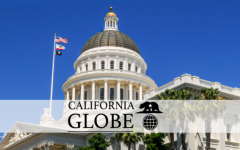
"I'm mad as hell and not gonna take it anymore," from "Network," 1976. (Photo: screen capture youtube)
De-platformed by PayPal, You Could Be Next
It’s great to live in a free democracy where freedom of choice is still the operative phrase
By Bob Makohin, July 16, 2021 2:55 am
“We believe every person has the right to participate fully in the global economy.”
– Headline introducing the About section on PayPal’s website
It’s early morning. You open your email to scan the orders that came in over the holiday weekend. Lots to ship this week. You spot an email from PayPal. Probably just another update to their constantly changing user agreement. These show up in your inbox regularly. Your brain struggles to compute the subject line: YOU CAN NO LONGER USE PAYPAL. Confusion builds as you read on.
After a review, we decided to permanently limit your account as we found potential risk associated with it. As a result, we can no longer offer PayPal services to you. Any bank or credit card information that’s linked to your PayPal account cannot be removed nor can it be added to another account. You can still log in and see your account information, but you can’t send or receive money. If you have funds in your PayPal balance, it will be held for up to 180 days. After that, we’ll email you with information on how to access your funds.
The familiar, blue Log in to PayPal button placidly rests below the message. You lean back in your chair mumbling, “What the hell is going on?”
A flurry of thoughts rush through your head. Has your account been hacked? Is this a phishing expedition? Is there fraudulent activity on the account as a result of a hacker’s actions? You sell a California agricultural product, ferchrissakes! Out of the blue, how can PayPal shut you down without so much as a warning? That’s not how large American corporations do business, is it?
It takes a minute to find a customer service phone number you can actually call – phew! Try finding one on Facebook, Apple, or innumerable other big websites. After a litany of computerized, answering system questions and voice-activated prompts, a long sequence of tips regarding phishing spoofs and how to report them, and more waiting accompanied by an additional droning of recorded answers to multiple PayPal questions, a human, identifying himself as Jim, picks up after 11 minutes and 43 seconds. Not surprisingly, Jim has a distinct East Indian accent. A thought flashes, isn’t PayPal in San Jose, California? Never mind.
Not very transparently, the only answers that the well-spoken Jim is able to provide are nothing more than a read-through of the email you already got. He has no access to any information that may shed light on the cause for the shuttering of your account. There’s no supervisor available to whom he can transfer your call. Finally, when asked about PayPal holding hostage for 180 days the several thousand dollars in your account, Jim reassures that you’ll be contacted by the Resolution Center in about a week. He promises they’ll provide you with more information. Frustrated, angry and disgusted, you end the call while scratching your head.
You calculate that your business runs close to $1,000 per day in transactions through PayPal. Your international customers are all over the planet – Mexico, Brazil, Holland, South Korea, The Philippines, Indonesia – to name just a few countries. In addition to all the major credit cards, you offer PayPal as a convenience to your wholesale customers, as well as retail ones, on your website. PayPal also affords the ability to execute wire transfers within their single platform. It’s critical for a product-based enterprise, such as yours, to make it easy for the more than 3,000 customers that do business with you.
You’re really flummoxed. “What did I do?” You’re sure, this has got to be a big mistake. You start Googling. You get a text from a buddy with whom you’ve been sharing this fast-breaking development, “What? Payback for voting for Trump or something?” At that moment, you realize that you did make some political donations last year using PayPal. “Nahhh… c’mon, man,” you think to yourself. That’d be crazy. Using PayPal isn’t cheap. They make decent money off your account. Then it occurs to you, maybe PayPal’s detected some fraudulent activity associated with some of your customers’ accounts? Maybe some of them are involved in sketchy practices like money laundering?
At that moment, your friend texts you an article about PayPal data breach concerns he found on CyberNews. It discusses authentication hacks. These can give an attacker access to an account after the hacker phishes for your credentials. But, even though more and more PayPal users have been beleaguered by such attempts in the past year, you’ve never received any such emails or texts. And the email you received announcing the closure of your account was authenticated by the not-so-helpful, Jim.
Your own searching reveals that you’re not alone. There are other similar tales of locked accounts. Illicit activities, for which PayPal proclaims it prohibits the use of its service, range from: 1. Violating any law, statute, ordinance, or regulation. 2. Transactions involving any (a) narcotics, steroids, certain controlled substances, or other products that present a risk to consumer safety; (b) drug paraphernalia; (c) cigarettes; (d) items that encourage, promote, facilitate, or instruct others to engage in illegal activity; (e) stolen goods including digital and virtual goods; (f) the promotion of hate, violence, racial, or other forms of intolerance that is discriminatory, or the financial exploitation of a crime; (g) items that are considered obscene; (h) items that infringe or violate any copyright, trademark, right of publicity, or privacy, or any other proprietary right under the laws of any jurisdiction; (i) certain sexually oriented materials or services; (j) ammunition, firearms, or certain firearm parts or accessories, or (k) certain weapons or knives regulated under applicable law. The list continues ad nauseam and describes absolutely nothing remotely close to what your business activities reflect – selling flower seeds to growers, who then sell their products to florists. And no, absolutely not, neither cannabis nor opium seeds are included! Your business is 110% on the level. Always has been. You’re just one of those guys who always does everything by-the-book.
You’re still wondering what in tarnation you could’ve done? Accompanied by a half-dozen hysterically laughing emojis, your wise-cracking pal, jokingly texts, “Maybe it’s because you own a troll farm in Moldova???” Yeah, that’s the ticket, you snicker. But damnit, this is serious. You’re not laughing at all. And you’re starting to believe that maybe you’re somehow on PayPal’s radar because your business gets large, daily, wire deposits into its bank account from China, the U.K., and wait for it… San Diego. What’s wrong with that? You’ve built a successful international business over decades. You pay lots of money annually in both federal and state income taxes. It’s all accounted for. How is that a crime?
You also learn that as a financial transaction services provider, in many ways PayPal functions like a bank. In doing so, it holds millions (if not billions) of dollars on deposit across its publicly reported, 346 million user accounts, and is not required by any banking regulations to cover those deposits with FDIC insurance. So, unlike a bank, if one day PayPal went belly-up for some reason, all those depositors would be left holding the bag. How did they manage to get that through the financial regulatory system? And how is it that they can lawfully hold onto your deposited funds for 180 days without paying any interest? There aren’t very many financial institutions that operate with that kind of a free pass. The only others that come to mind are the IRS and states’ and counties’ governing tax authorities. That’s a real stunner.
After a few days and miles of scrolling, an article from Fortune finally appears. It begins by stating that, PayPal CEO, Dan Schulman, stands by his company’s controversial actions to ban certain activities from its payment platforms. Ah-ha! According to him, PayPal maintains an “acceptable use policy”. Not even in your spare-time, of which there’s almost none, have you ever, “advocated violence, hatred, or racial intolerance.” Schulman added by saying that navigating “the fine line between what is hatred and what is free speech and who do we allow to fundraise using PayPal or Venmo, and who don’t we” is “one of the hardest things that we have to do.” He also emphasized his and the company’s commitment to enforcing this policy despite the understandable backlash that has come with it.
According to the article, “Following the breach of the Capitol by a violent mob of supporters of Donald Trump in January, PayPal closed accounts of groups that had funneled money to those who stormed Washington, D.C. Under Schulman’s leadership, the payments company also moved to block those affiliated with white supremacist and other hate groups from using its payments platform in the past few years.”
Clearly, seven months later, PayPal’s purge of any of its customers, who may even exude the slightest whiff of any conservative leanings in their politics, are considered persona non grata, and forced into exile. As shocking as the reality of your sudden de-platforming is, you can at least find solace in the fact that you may have finally solved this troubling conundrum.
Another couple of days pass, and exactly a week after your notice from PayPal, this arrives in your inbox from Team Venmo (a PayPal company).
We have recently reviewed your usage of Venmo’s services, as reflected in our records. Due to the nature of your activities, we have chosen to discontinue service to you in accordance with Venmo’s User Agreement. As a result, we have placed a permanent limitation on your account. We ask that you please remove any and all references to Venmo from your website and social media accounts. You may transfer the remaining account balance to your bank account, but you will no longer be able to access your Venmo account. We thank you in advance for your cooperation. If you have any further questions, please reply to this email.
So, there it is in black & white. There doesn’t seem to be much doubt that your red-blooded, American business was most likely de-platformed by PayPal because of what you may believe, who you may believe in, and who or what political organizations you may have contributed to during last fall’s election cycle. Singled-out, you find yourself with a scarlet letter emblazoned on your chest for violating the ethics code of yet one more, overly powerful, tech-giant like Facebook, Twitter, and Google. Add PayPal to the growing list of liberal, fascist enterprises doing their damnedest to shutdown any free speech from their opposition. The company’s actions fly directly in the face of the oversized headline proclaiming their stated belief that every person has the right to participate fully in the global economy.
Not only are you smart, you’re nimble. That’s one reason why you’ve been successful with your business. From the start of this debacle, you quickly instructed your webmaster to take down all references to PayPal and replace them with Amazon Pay. You’ve now even found four additional platforms whose use you’re considering for international payments. Even during the transition, orders still poured-in at over $1,000 per day. It’s great to live in a free democracy where you have options. Where freedom of choice is still the operative phrase. Today, you find your commitment to that ideology renewed and strengthened, with an increased resolve to fight the tyranny that’s raising its ugly head around us. Such injustice must not stand.
The actual events described above began taking place on July 6, 2021.
- De-platformed by PayPal, You Could Be Next - July 16, 2021
- Mass Migration Across the Open Border Provides Cover for Drug Cartels - May 30, 2021








And the businessman replaced PayPal and Venmo with Amazon Pay???? Stand by, because Amazon is not different and is a partner in the cancel culture movement. What is needed is federal regulations against discrimination by tech companies against anyone based on Constitutionally protected rights. And massive class-action lawsuits. Can’t roll over and take it.
Agree 110%. That’s why four additional platforms to Amazon Pay are currently in review for adoption for the business’s international payments. Amazon Pay (and formerly PayPal) only represent a fraction of the company’s transaction processing. You’ve got to keep your business up and running while you seek explanations and remedies to a problem caused by a services provider like PayPal. In the meantime, as the saying goes, “The show must go on.”
Sounds great& who’s gonna pass those fed regulations, not the current congress,& untill all the fraud& illegalities of last election R fixed,not gonna be able to vote those in now out. So, guess we’re screwed, like most people & businesses in communist, rigged, can’t dissent, countries.
Wow…. Here we go with the Bay Area Tech fascism…
And the A-Pay is no solution…
Deeply, deeply troubling…
Happened to me in May. So frustrating. Paypal was 6% of sales. I found this article because I was researching if Amazon Pay can close accounts. Don’t want to waste dev time setting things up if they are going to take the PayPal route. I guess you are still running with Amazon. Can you share the other 4 options (we also got banned by Venmo).
Sorry to hear your biz got whacked, too. Since launching the retail website, Authorize.net, a credit card processor that also accepts e-checks, has always been in use. PayPal was included as a convenience for customers who might want it. Loss of PP has had no negative impact on sales volume. Amazon Pay is just another credit card processor like so many others. For international transactions, Wise.com is a good choice. Hope this helps, David.
Very disturbing trend. Here’s how it works. Step #1) A giant like Amazon, Facebook, Twitter, PayPal, start blocking and removing people for political opinions. Step #2) When alternative providers emerge the giants start losing market share; Step #3) The giants lobby the government to make laws that support their political bias and prevent competition; Step #4) We are stuck in a weird monopolistic oligarchy that feels like the USSR, not the USA. Sadly, most are ignoring or even supporting this disturbing trend. I guess we get the government we deserve
Somebody casts the votes to elect our so-called leaders. Unless of course, you understand like Stalin, that it’s he who counts the votes who wins.
This is extremely disturbing. The clear evidence we have turned into a communist regime is more apparent each and every day. The one world order globalists are clearly in control and our freedoms are almost gone! Word has it there is a possible devolution through our military, going on, to stop all of this and whose plan is to take our country back and imprison those who stole our election , and every other treasonous act! . I pray this is true! We can’t continue on this present path that leads to no more America! I refuse to believe our American boys would allow this! Have faith they have a plan. I just wonder how far they’re going to let this go? What is their breaking point? Isn’t the results of the Arizona Audit enough for them to take action? They can’t keep letting this go on! They need to strike NOW!! Otherwise we are truly doomed! I stay awake at night looking for signs something good has begun to take place, but every day it’s just more bad news of reading things like this. One freedom stripped away after another. Come on America! Where are you?? Time to get busy! Enough is enough!
Benjamin Fulford weekly international report for a basic $11 monthly subscription was one of the latest victims of PayPal’s benevolent political p.o.v. enabling sex offenders, anti- Rittenhouse folks & Marxists in BLA, Antifa to continue their wayward ways…